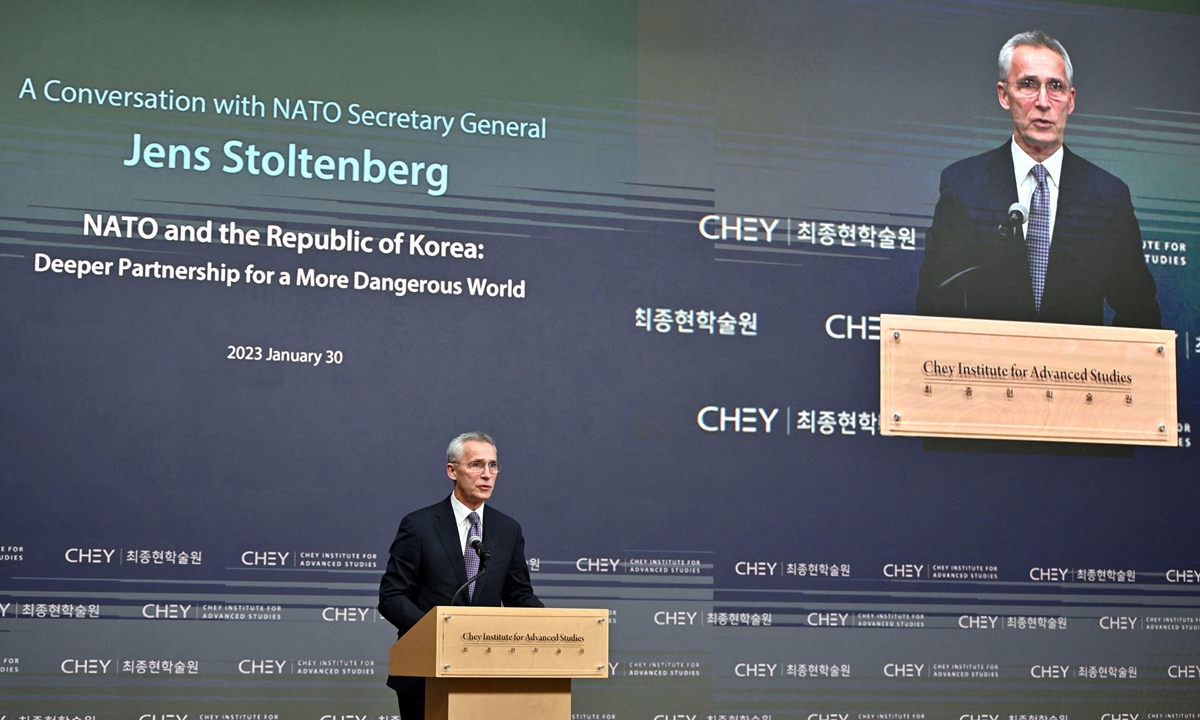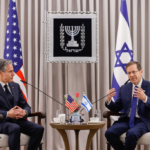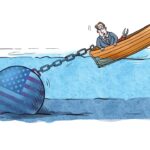Obviously, Stoltenberg eyed wider. NATO’s existing nuclear sharing mechanism has nothing to do with the security issues on the Korean Peninsula. It has to bring China and Russia along so that its appearance on the Korean Peninsula will not seem that abrupt and will not arouse the South Korea’s vigilance. Stoltenberg cited “nuclear threat” from China, Russia, and North Korea to strengthen information sharing with South Korea. His purpose is very clear, that is, to draw South Korea into the cooperation framework of NATO. Nuclear sharing is just an excuse with which NATO’s grip can be extended to Northeast Asia in an imposing manner.
Although on the highly sensitive issue of nuclear sharing, Stoltenberg reserved some leeway in his public statements, the outside world generally believes that the “information sharing” he proposed will not be the end of NATO’s involvement in the Asia-Pacific. Some analyses from South Korea pointed out that NATO’s move is intended to echo the US and expand its activity area to the “Indo-Pacific” region to contain China. Although NATO claims that its positioning as a regional defensive alliance has not changed, since last year, it has continued to break traditional defense zones and areas and greatly strengthened military and security ties with Asia-Pacific countries such as Japan and South Korea. Now Stoltenberg is standing on the soil of Northeast Asia, talking about “nuclear deterrence” in such a high-profile manner, which highlights the serious threat NATO poses to this region.
The stalemate on the Korean Peninsula and NATO are two remnants of the Cold War in Eurasia, but the former is a victim of the Cold War, while the latter is a beneficiary. After the end of the Cold War, NATO lost the necessity and legitimacy of existence, but it survived by sucking the tense and terrifying atmosphere caused by new crises and conflicts. The reason why NATO has set its sights on the Korean Peninsula is just like hyenas staring at the bleeding wounds of other animals. What it brings to Northeast Asia is the drumbeat of a new cold war.
It is very popular in the US and the West to use the Ukraine crisis as a “security textbook” to sell security fears everywhere, and Stoltenberg’s trip is no exception. However, what happened on the European continent just shows that once there is a security dilemma, even allies will turn against each other, and this knot will become tighter and tighter. In fact, this has a similar underlying logic to the situation on the Korean Peninsula. The North and the South used to “arm themselves” out of their respective security concerns, which in turn deepened the other side’s concerns. What has happened on the peninsula in recent years has already proved that hostility and confrontation can never be the messengers of peace. This is crystal clear.
We have noticed that although Stoltenberg always “intentionally or unintentionally” mentioned China when he unilaterally talked about the “threat” from North Korea, the South Korean side seemed to be relatively low-key about it. In Stoltenberg’s meeting with South Korean President Yoon Suk-yeol, as well as with the defense and foreign ministers, the South Korean side avoided talking about China as much as possible. This shows that South Korea’s security concerns so far are still mainly focused on the peninsula issue, but South Koreans need to take more precautions against the calculative NATO. The accelerated extension of NATO from Europe to Northeast Asia will only make the situation on the peninsula more complicated and difficult to resolve, and the result is by no means what South Korea wants to see.
South Korea’s national stability and economic development today are inseparable from the long-term relative peace and stability on the peninsula. The Hankyoreh pointed out soberly in a commentary, “NATO’s nuclear sharing is not about owning or sharing usage rights to nuclear weapons, but a means of sharing the political burden and operational risks.” The “nuclear bait” brought about by NATO is definitely poison rather than a cure for South Korea, which pursues a safe and stable external environment. Today, NATO’s intention to get involved in the Asia-Pacific is well known. How to refuse to “drink poison to quench thirst” will test Seoul’s political wisdom.













